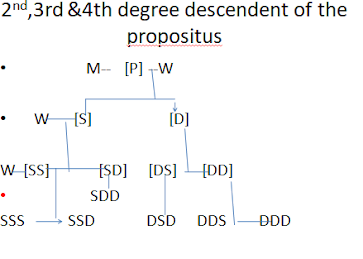Muslim Law OF Inheritance
Muslim Law OF Inheritance Q. 12 (a) Outline the distinguishing features of the law of inheritance under Muslim Law. Ans. 1. Application of law. The property of a deceased Muslim is to be distributed according to the law to which he belonged at the time of his death. Thus, if a Hindu embraces Islam, and dies a Muslim, the distribution of his estate will take place according to Muslim Law and his Hindu relatives cannot claim any benefit. 2. Nature of property heritable.- There is no distinction in Muslim Law between movable and immovable property or real and personal property, or ancestral and self-acquired property, or between separate and joint family property. 3. No Primogeniture . In the absence of any custom there is no rule of primogeniture. If a man leaves several children, the eldest does not exclude the rest. However, under Shia law the rule of primogeniture is recognized to some extent. 4. No spes-succession.- Unlike Hindu Law, Musli...
